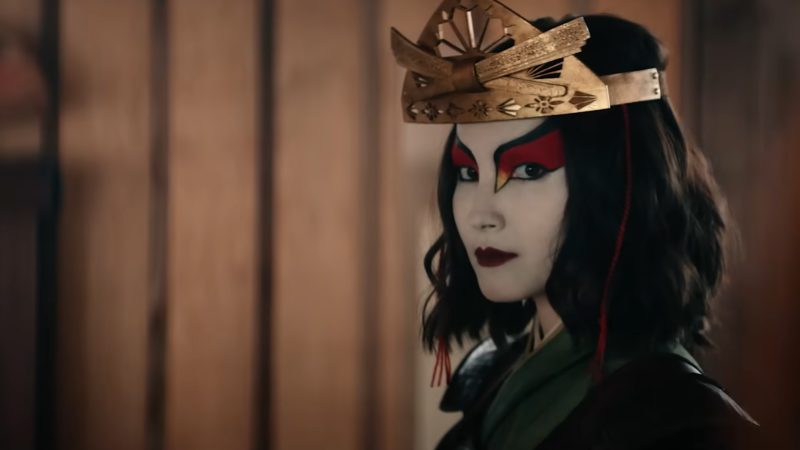Live-action adaptations always make changes to their source materials. Some end up better for it, like HBO’s The Last of Us, which deviated from the video games in more ways than one. But, what happens if these variations risk an integral part of a character’s arc?
Such is the conundrum currently faced by fans of Nickelodeon children’s animated show, Avatar: The Last Airbender, as they wait for the premiere of the adaptation of the same name on Netflix.
With less than a month to go before it streams on Netflix, the actors Ian Ousley and Kiawentiio, who portray Sokka and Katara respectively, sat with Entertainment Weekly, where they revealed that the adaptation would tone down Sokka’s sexist tendencies, a trait that was prominently featured if not highlighted in the original animated series. This decision has raised eyebrows and sparked debates across the fan community, as it alters a significant aspect of Sokka’s evolution as a character throughout the Gaang’s journey.
Sokka’s sexism in the original series is acknowledged as a character flaw, integral to his development and growth across the series’ three seasons. His initial sexist attitude, which spurs Katara to reveal Aang in the iceberg, sets off a series of events that define the narrative of Avatar: The Last Airbender. The original show takes Sokka through a journey where he constantly encounters powerful women, including his sister, Katara, the earthbender Toph Beifong, and the non-bending warriors of Kyoshi, including his on-screen romance partner, Suki. These interactions contribute to his gradual realization and understanding of his flawed perspective, ultimately leading to his growth into a respectful and enlightened individual.
The main criticism regarding the change is that removing this aspect of Sokka dilutes the impact and significance of his evolution in the series. The original narrative portrays Sokka’s sexism as a negative trait, to be challenged and, in time, unlearned. By showcasing his transformation, the series not only criticizes sexist attitudes but also highlights how one can change and grow. The fear among fans is that by eliminating this storyline, the adaptation loses an opportunity to address a serious issue, making Sokka a less complex character who does not need to confront and overcome his prejudices.
The live-action adaptation’s decision to tone down Sokka’s sexism is seen by audiences as a move to align it with the modern sensibilities of today’s shows and to avoid potential criticism. However, this has raised concerns about whether this approach simplifies characters and their journeys. Fans are questioning whether other significant aspects of the beloved series will be altered, leading to a deviation from the spirit and message of the original.
The change in Sokka’s characterization reflects the broader trends in storytelling, where audiences expect characters to embody contemporary values from the outset, rather than growing into them. This shift can lead to characters lacking depth and don’t resonate with audiences who value nuanced, realistic portrayals of personal growth.

While the adaptation may bring new elements and interpretations to the table, it remains to be seen how it will balance staying true to the essence of the original series with its own creative vision. Sokka’s character, known for his humor and intelligence as well as eventual maturity, is a beloved part of the Avatar universe, and how he is represented in the new series will be a crucial factor in its reception by the longstanding fan community.
The first season of Netflix’s Avatar: The Last Airbender will premiere on February 22.

